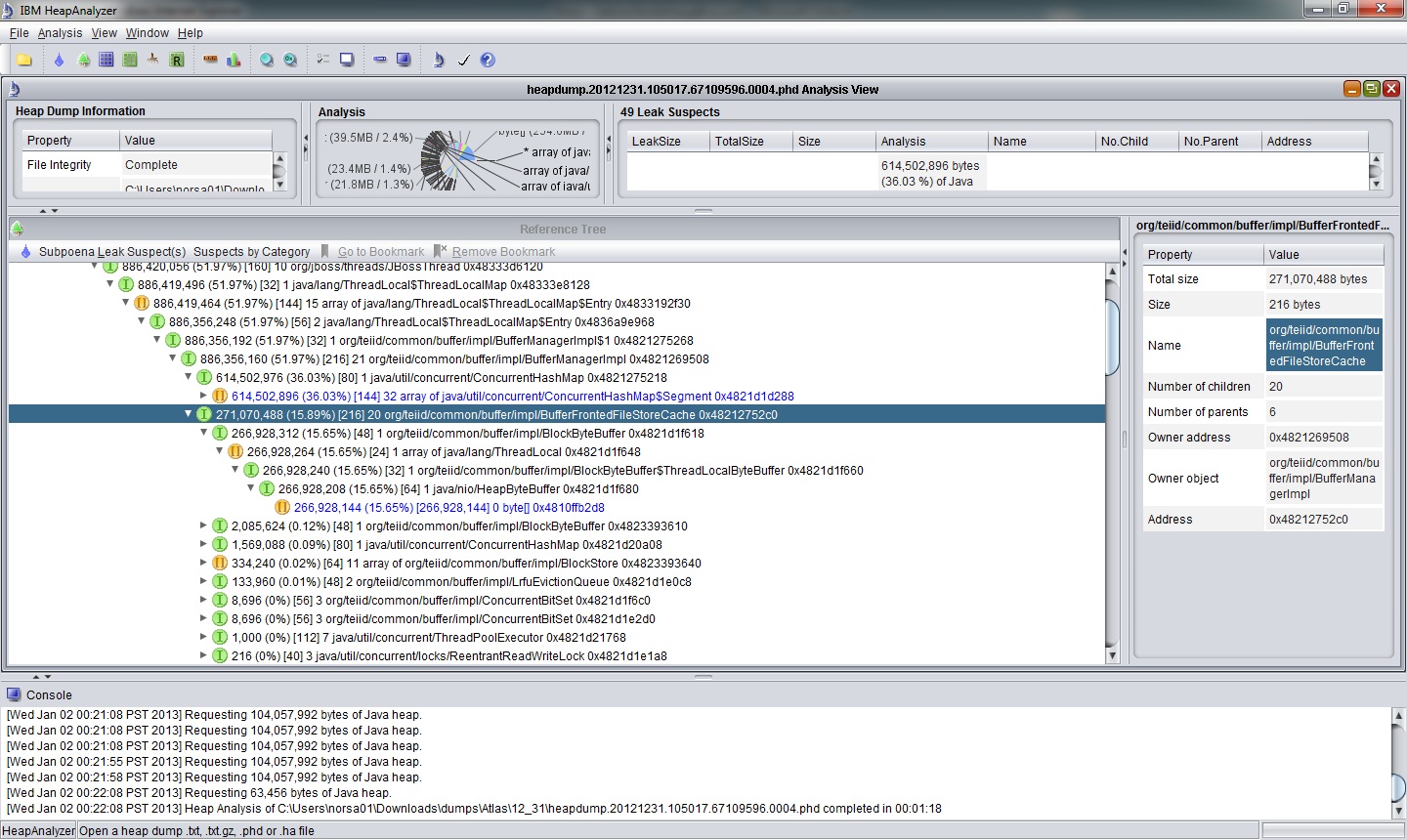org.teiid.common.buffer.BlockedException
nsabina Jan 7, 2013 2:09 PMWe are getting high CPU usage for continuous queries (any demo object). As observed CPU usage is growing over time as user clicks on the object and keep watching the page being autorefreshed.
For the purpose of my test I set autorefresh interval to one second. In debug mode I am seeing following exceptions in the log (larger log fragment is attached). There is a set of 4 or 5 of them for every async execution.
06 Jan 2013 22:39:20,462 PST DEBUG [org.teiid.COMMAND_LOG] (Worker5_QueryProcessorQueue10100) END SRC COMMAND: endTime=2013-01-06 22:39:20.462 requestID=olFjRZvdszew.0 sourceCommandID=3 txID=null modelName=demodata_file translatorName=demodata_file.delegated-translator sessionID=olFjRZvdszew principal=admin@chorus-login-security finalRowCount=1
06 Jan 2013 22:39:20,462 PST DEBUG [org.teiid.BUFFER_MGR] (Worker17_QueryProcessorQueue10093) Removing TupleBuffer: 8329
06 Jan 2013 22:39:20,462 PST DEBUG [org.teiid.PROCESSOR] (Worker17_QueryProcessorQueue10093) QueryProcessor: closing processor
06 Jan 2013 22:39:20,462 PST DEBUG [org.teiid.BUFFER_MGR] (Worker8_QueryProcessorQueue9904) Blocking on non-final TupleBuffer 8282 size 20: org.teiid.common.buffer.BlockedException
at org.teiid.common.buffer.TupleBuffer$1.finalRow(TupleBuffer.java:329)
at org.teiid.common.buffer.AbstractTupleSource.getCurrentTuple(AbstractTupleSource.java:69)
at org.teiid.common.buffer.AbstractTupleSource.nextTuple(AbstractTupleSource.java:48)
at org.teiid.query.processor.relational.SortUtility.incrementWorkingTuple(SortUtility.java:388)
at org.teiid.query.processor.relational.SortUtility.mergePhase(SortUtility.java:337)
at org.teiid.query.processor.relational.SortUtility.sort(SortUtility.java:188)
at org.teiid.query.processor.relational.SortNode.sortPhase(SortNode.java:102)
Can you please explain the nature of this exception? Can it indicate a potential resource leak ? If yes any sugestions on how to further diagnose it?
Just in case if it might be related I have also seen org.teiid.common.buffer.impl classes in relation to potential leak suspects in few of our recent OOM heap dumps.
I also have snapshots of CPU usage by method collected over time and can provide it if needed.
Thank you,
Sabina
-
server_small.log.zip 75.8 KB
